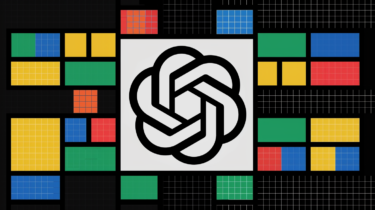Meta envisions social networks where AI characters coexist alongside human accounts
December 29, 2024
Meta is laying the groundwork for a future where AI-generated profiles will interact alongside regular users on Facebook and Instagram, with some of these tools already rolling out.
According to Connor Hayes, Meta’s Vice President for Generative AI, the company sees AI characters becoming a regular part of its social networks in the coming years. These AI profiles will work just like human accounts, complete with their own bios, profile pictures, and the ability to post content.
“We expect these AIs to actually, over time, exist on our platforms, kind of in the same way that accounts do,” Hayes tells the Financial Times.
Meta has already started testing these waters. Since July 2024, U.S. users have had access to an AI character creation tool that’s resulted in hundreds of thousands of new AI profiles. So far, though, most users have kept these AI characters private, Hayes says.
The company sees this AI integration as a chance to make its apps more engaging. Hayes says that making AI interactions more social will be a key focus for Meta over the next two years. For now, most content creators are using Meta’s AI tools to simply enhance their existing content, such as touching up photos.
While Meta launched AI versions of celebrities in fall 2023, these haven’t gained much traction yet.
Balancing opportunities and risks
Former Meta Creator innovation team head Becky Owen raises some red flags about this AI-filled future. Speaking to the Financial Times, she warns that bad actors could use AI accounts to spread false information.
She also points out that AI characters lack real-world experience, genuine emotions, and authenticity compared to human creators. This could lead to platforms being flooded with low-quality posts.
Meta requires AI-generated content to be clearly labeled, but enforcing this isn’t straightforward. While audiovisual content can be marked with CC labels when platforms support it, detecting AI-generated text remains challenging and largely depends on users choosing to label it themselves.
The advertising question
Meta is currently testing how to blend AI-generated, personalized content into Facebook and Instagram feeds. This content adapts automatically based on what users like and current trends, with user interactions helping shape what they see next.
But this AI push could create challenges for Meta’s advertising business. Companies probably won’t be excited about their ads getting more bot interactions, especially since ads perform best alongside high-quality content.
On the flip side, Meta could use AI content to increase its reach and interactions in such a way that advertising revenues also increase. There’s also a chance that highly personalized AI content could keep users scrolling longer, though that remains to be seen.
Character.ai offers a glimpse of both the potential impact and serious risks of personalized AI chatbots in people’s lives. While AI chatbots can offer companionship, ease loneliness, and boost positive emotions with supportive messages, they also raise concerns about emotional attachment.
Their increasing human-like qualities make users more likely to form emotional bonds, which can be particularly concerning when people use AI as a substitute for counselors, friends, and romantic partners. The platform has faced significant concerns after a 14-year-old user died by suicide after extensively communicating with a chatbot.
This concern is amplified with the development of more human-like features, such as voice capabilities, which could potentially strengthen emotional attachment to AI systems.
Search
RECENT PRESS RELEASES
Related Post





